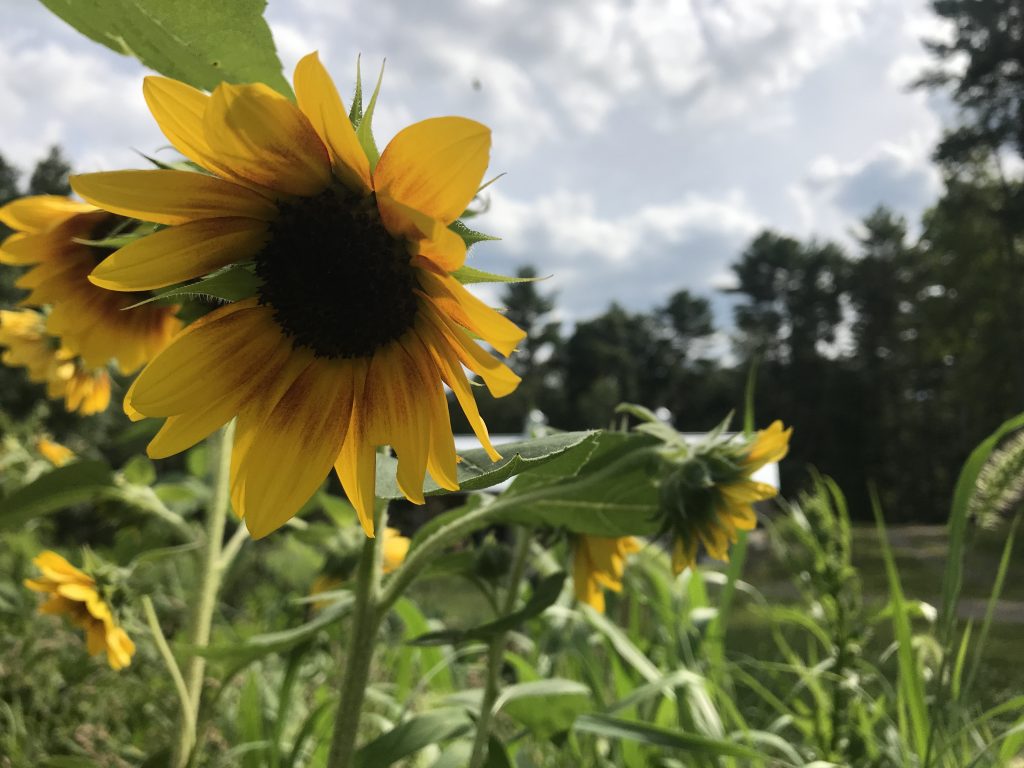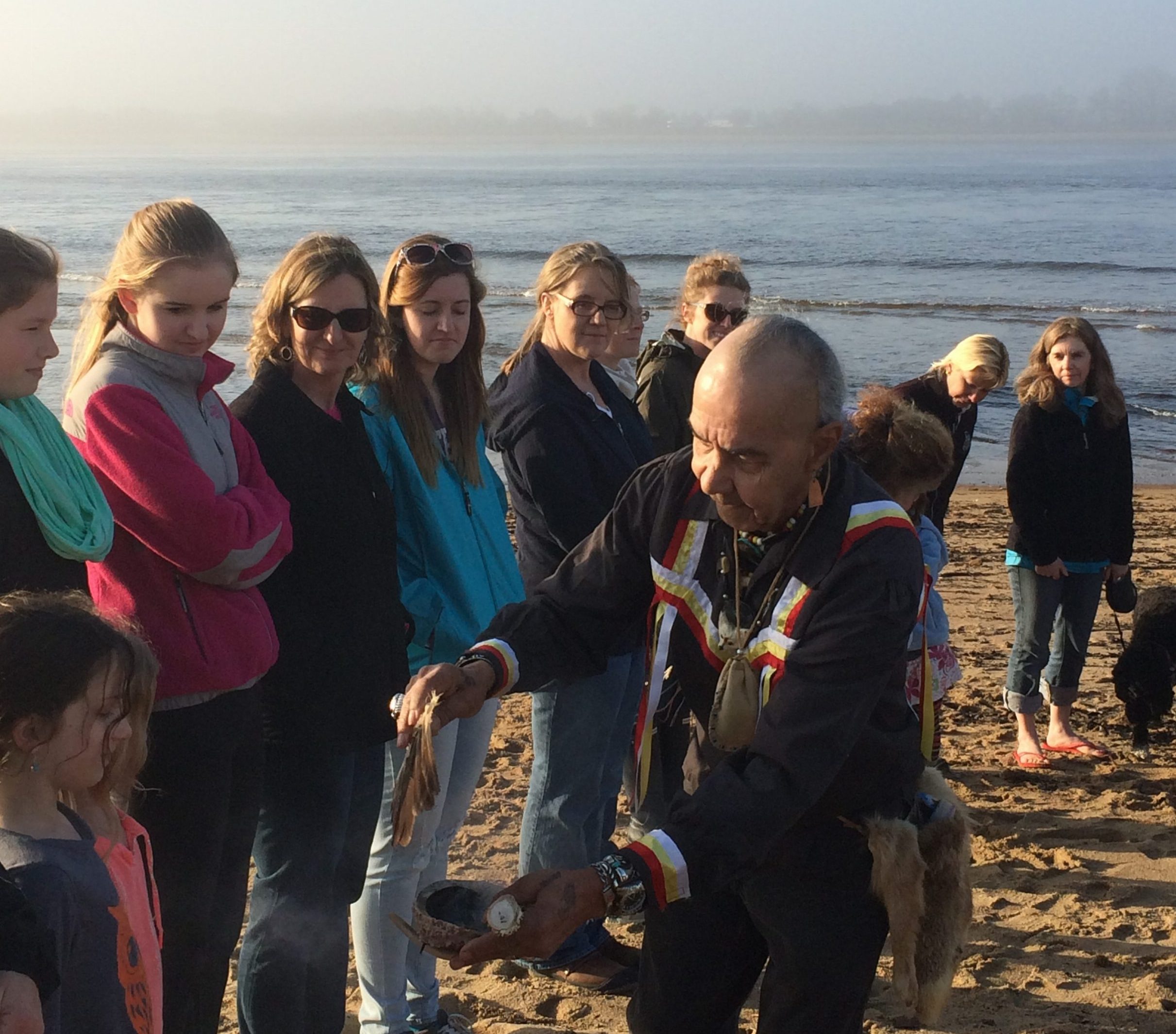Merrohawke programs take place on sacred, unceded ancestral lands of the Pawtucket and the Massachusett peoples, from whom the Commonwealth of Massachusetts took its name. With deep gratitude, we thank the indigenous caretakers of these lands and waters who have lived here--and continue to live here--for thousands of years.
It is a privilege for us to work and live among their ancestral homelands.
As an education organization, Merrohawke strives to lead with honesty, compassion, and reflection. We have always sought to learn the stories of these lands and waters and to be in good relationship with them. Integral to this effort is acknowledging the centuries-long history of colonization in Essex County that has brought us to where we are today.
At Merrohawke, we stand in solidarity with the indigenous peoples of Massachusetts. We are committed to supporting their ongoing efforts to protect and preserve their native culture, traditions, spirituality, and community.


Our organization name, Merrohawke, is not a native word but instead an original word that we created. We once read that some historians believed the Pawtucket called the Merrimack River “merroh awke” meaning “strong place.” We believe time in nature makes us all stronger, and we believe the Merrimack River, as she became known, gives exceptional character to our community with her beauty, rhythms, and wildlife that call her watershed home. In honor of the river’s resilience, endurance, and strength, and in honor and acknowledgment of the indigenous peoples of this region, we changed our name to Merrohawke Nature School in spring 2014. John Sly Fox Oakley, an elder of the Mashpee Wampanoag Tribe who was active with the Massachusetts Center for Native American Awareness, gathered with Merrohawke staff and friends to conduct a blessing ceremony of our new name by the water’s edge on Plum Island in May 2014. We hope the name Merrohawke invites curiosity, interest, and support of the indigenous peoples of Massachusetts today.
We acknowledge that our unique organizational culture and our nature-connection, place-based, and Waldorf-inspired curriculum, including many of our stories, songs, skills and crafts, originate from, or are inspired by, cultures that have lived in close connection to the land for thousands of years. We do our best to share what we have learned in skillful and respectful ways as we continue to strive for deeper understanding, wisdom, and expertise.
It is our hope that our work will strengthen each child’s connection to nature so that they may grow into adults willing and able to protect these sacred lands and waters for future generations.
Supporting Native People in Massachusetts
At Merrohawke, we take actionable steps to support the native peoples who live among us throughout Essex County and Massachusetts.
- Since 2014, Merrohawke has been a dedicated supporter of the Massachusetts Center for Native American Awareness by:
- Being a dues-paying member at the most meaningful level that we can each year
- Donating auction items and supporting fundraising events
- Volunteering time. Our Executive Director, Kate Yeomans, serves as a member of the MCNAA’s Advisory Council.
- Merrohawke contributes annually as a Business Sponsor and nonprofit partner of Greenbelt, Essex County’s Land Trust. We support Greenbelt’s ongoing efforts to protect and preserve public access to the beautiful land and waters of Essex County.
We acknowledge that there is always more that we can do. We will support native-owned businesses and artisans whenever we can. We will support Native-led efforts to remove harmful mascots, place names, and statues.
What can you do?
Take time to learn more about colonization across New England and the history of Essex County’s indigenous peoples. Discover what they are doing now to protect, support, and share their history, culture, and environment.
Consider returning land as individuals around the country are now doing. The Mass. Center for Native American Awareness will accept the return of any piece of land located within the I-495 belt – specifically Essex and Middlesex counties.
For reference:
https://historicipswich.org/resources-for-local-native-american-history-and-dialects
https://www.montserrat.edu/mary-ellen-lepionka
https://www.thewitchhouse.org/the-naumkeag
What’s your land acknowledgment?
To learn more about the practice of Land Acknowledgements, please visit https://www.mcnaa.org/land-acknowledgement.
To learn more about the native land you are on, visit Native-Land.ca.